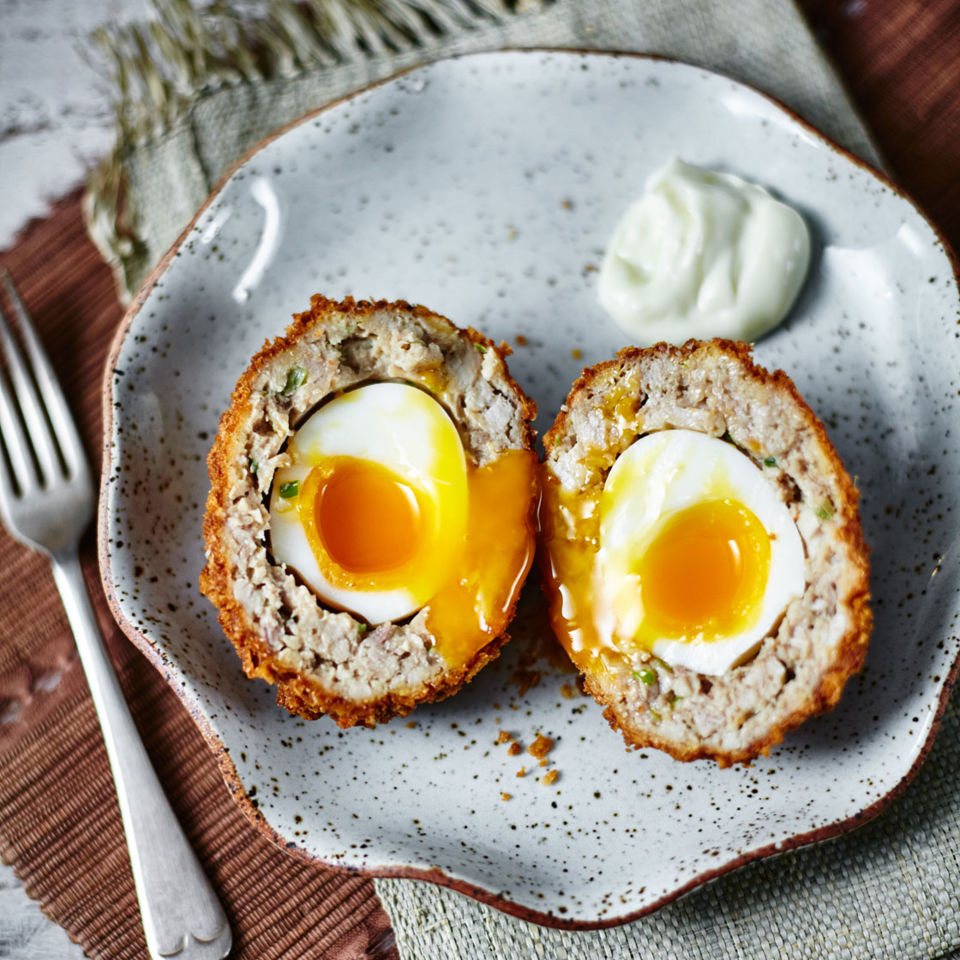Food
Ultimate Scotch eggs - everything you need to make the definitive British snack
by Nadine Brown

Consider an egg, wrapped in a meat blanket, coated in breadcrumbs and fried until it’s an enticing crispy fist-sized orb. As definitive British snacks go, the Scotch egg is probably the one that sounds and looks the most peculiar, but I’d also argue it’s probably the most delicious. Food within food has always struck fear in the heart of the home chef. While this is no turducken – the practice of cooking a chicken within a duck within a turkey (reminder to try and avoid that for any future articles) – Scotch eggs are typically seen as a trickier cook due to the importance of keeping the egg yolk soft, the meat juicy but cooked through and the breadcrumbs uniformly golden and crunchy. However, it’s certainly possible to learn how to fry a batch that would take pride of place on any picnic blanket.
What are Scotch eggs?
The history of the Scotch egg might be loftier than you would expect, with grocer to the royals Fortnum & Mason claiming it created the original in 1738 as a meal for travellers heading west from Piccadilly – a much better travelling snack than a packet of crisps on a packed London bus. Further research led me to The Oxford Companion to Food, where food historian Annette Hope suggests they might have been inspired by the Indian dish nargisi kofta. Whatever the background, the element that remains consistent is the obligatory egg centre, specifically soft-boiled.
How do you make Scotch eggs?
Josh Cutress, head chef at the Harwood Arms, agrees. Routinely recognised for selling one of the best pub Scotch eggs in the capital, the Harwood Arms is known for its venison-and-pork mix, though Josh reveals the fat content is the most important thing: ‘As long as the fat content is high enough to prevent the meat from becoming dry and tough, you can experiment with pretty much anything,’ he says. ‘It’s really a matter of personal preference. I’ve seen versions made with black pudding too.’
Personally, I opt for straight pork sausagemeat, avoiding the pricier packs that tend to have additional flavours. I want to be able to manage the taste myself with a mixture of soft chopped herbs and spices, such as fennel – a perfect pairing for pork.
Breadcrumb type varies from camp to camp. Team panko is a large group of which Josh is a member. He makes the great point that less moisture is better when it comes to frying. Still, I’m always a fan of using what’s in your storecupboard, and it’s far more likely you’ll have a few slices of bread in your kitchen than a tub of panko – though the staler the bread the better.
Top tip
Avoid boiling the eggs for longer than advised and make sure to immediately plunge them into ice-cold water to avoid overcooking the yolk and creating a dry, rubbery centre
Once your Scotch eggs are made, give them enough time to rest and let the meat cook through, Josh advises. Then it’s just a matter of what to serve them with. Whether that’s a punchy pickle, some coleslaw and a salad, or you simply enjoy them on their own as a walking snack – like our peckish 18th-century brethren – their portability is why they have stood the test of time as the ultimate pack-and-go choice.

Can you freeze Scotch eggs?
Freezing Scotch eggs is not advised. You can keep your Scotch eggs in an airtight container in the fridge for up to four days.
Ready to have a go?
Get cracking and roll on with the ultimate Scotch eggs recipe.












